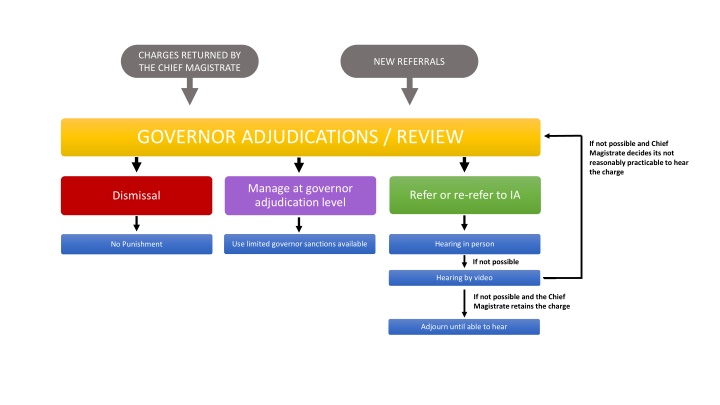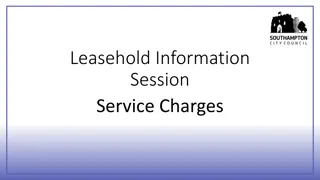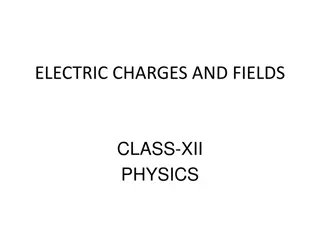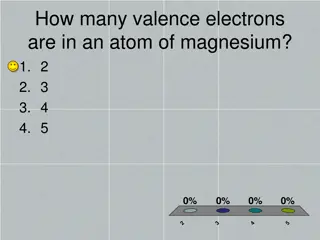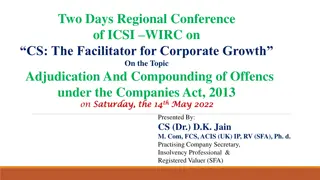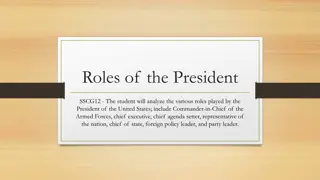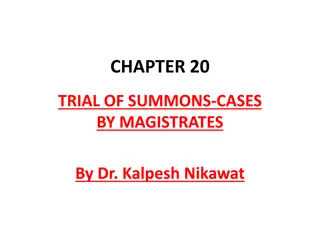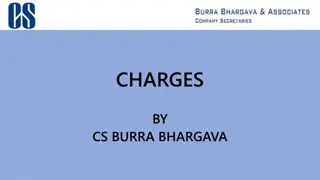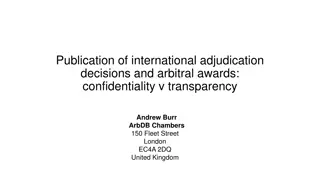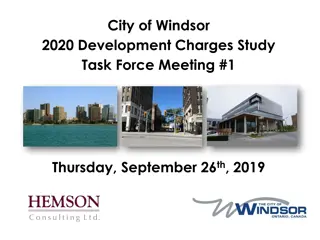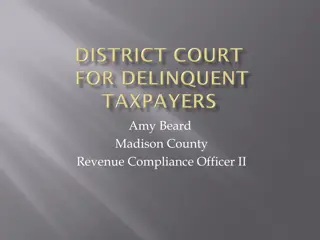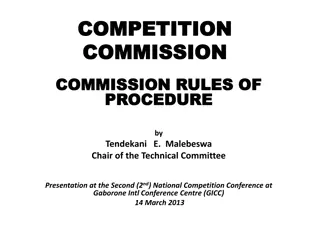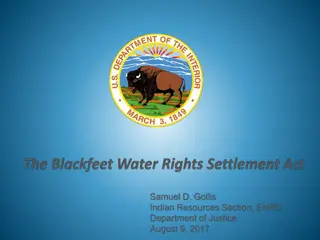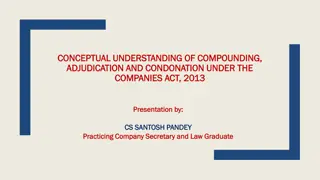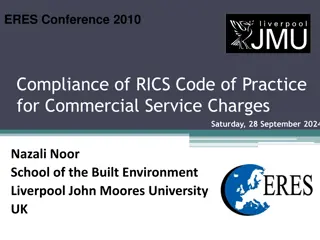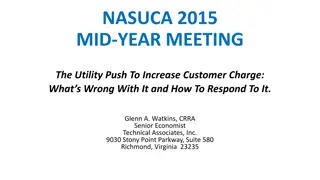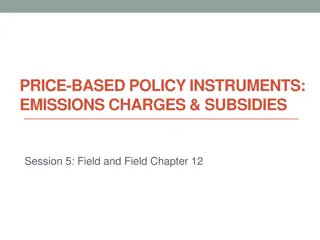Procedures and Criteria for Adjudication of Charges by Chief Magistrate
The process of adjudicating charges returned by the Chief Magistrate involves detailed steps, including review by the governor adjudication level and independent adjudicator referral. Factors such as procedural fairness, evidence quality, and seriousness of the charge are considered. If a charge is dismissed, it is communicated to the prisoner promptly. The seriousness of the charge is assessed against a refined list and may lead to referral to the Independent Adjudicator.
Download Presentation

Please find below an Image/Link to download the presentation.
The content on the website is provided AS IS for your information and personal use only. It may not be sold, licensed, or shared on other websites without obtaining consent from the author.If you encounter any issues during the download, it is possible that the publisher has removed the file from their server.
You are allowed to download the files provided on this website for personal or commercial use, subject to the condition that they are used lawfully. All files are the property of their respective owners.
The content on the website is provided AS IS for your information and personal use only. It may not be sold, licensed, or shared on other websites without obtaining consent from the author.
E N D
Presentation Transcript
CHARGES RETURNED BY THE CHIEF MAGISTRATE NEW REFERRALS GOVERNOR ADJUDICATIONS / REVIEW If not possible and Chief Magistrate decides its not reasonably practicable to hear the charge Manage at governor adjudication level Refer or re-refer to IA Dismissal Use limited governor sanctions available Hearing in person No Punishment If not possible Hearing by video If not possible and the Chief Magistrate retains the charge Adjourn until able to hear
The Chief Magistrate returns an Independent Adjudicator referral back to the prison REVIEW An adjudicating governor reviews the charge within 14 days of receiving the notification from the Chief Magistrate. The governor must consider the charge on its individual merits. Natural justice principles Step 1: Can procedural fairness and natural justice principles be upheld if the charge is proceeded with? Are witnesses still available? (consider how significant/important a particular witness might be in the context of a particular case); Any deterioration in the quality of the evidence as a result of the passage of time, including physical/tangible evidence, and the memory of key witnesses being weakened; Whether the evidence is no longer held/available at all due to the passage of time; Any other reason why delay may have caused unfairness, in the sense of having undermined the prisoner s ability to present his own case properly (e.g. in the intervening period, has the prisoner suffered a serious deterioration in his/her health) The release or imminent release of the accused prisoner or a vital prisoner witness. DISMISALL Yes No Dismiss the charge Proceed to Step 2 Note the outcome on Form DIS3, and using template A inform the prisoner as soon as possible that the charge has been dismissed
Step 2: Does the charge meet the refined seriousness list? Review the charge against the refined seriousness list: PR 51(1), YOI 55(1) Assault: Assaulting prison officer, Assaulting inmate weapon/sustained attack PR51(1A), YOI 55(2) Racially Aggravated assault PR51(2), YOU 55(3) Detains any person against their will PR51(3), YOI 55(4) Denies access to any part of the prison PR51(4), YOI 55(5) Fighting- sustained attack/ multiple incidents PR51(5), YOI55(6) Endangering Health and Safety of Others (Intentionally) PR 51(7), YOI 55(8) Escape PR51(16), YOI 55(17) Set fire to part of a prison No SERIOUSNESS LIST Are there other reasons why the charge is so serious , or that it is necessary or expedient for the charge to be referred to the IA? Yes Examples include; repeated rule-breaking, extensive damage to prison property, the charge is a serious localised problem, necessary for the management of a particular prisoner Yes No Proceed to Manage at Governor Adjudication level Proceed to Step 3
Consider whether it may be more appropriate to deal with this case in-house. E.g. has there been any change in circumstances since the original referral? Are there serious safer custody concerns which would now make the referral less desirable? This ensures that limited IA availability is reserved for the necessary cases and that these referrals can be dealt with quickly and effectively. Step 3: Are there any reasons why the charge would be better dealt with in-house? GOVERNOR ADJUDICTION Yes and can be dealt with appropriately through a governor adjudication Manage at Governor Adjudication level When awarding governor sanctions consider the individual punishment , the regime being operated and the impact of this punishment on the prisoner and prison stability e.g. removal of television when operating a restricted regime Note the outcome of review on form DIS3 and using template A as soon as possible inform the prisoner that the charge has been reviewed and will be dealt with at governor adjudication level. Open the hearing within 14 days of the Chief Magistrate returning the charge No - this is so serious that only added days is the appropriate sanction
Re-refer to the Independent Adjudicator It is important to include the reasons for making the referral to the IA, particularly if the charge falls outside of the revised seriousness list.. This will avoid the charge being returned to the prison. For example; this prisoner has made repeated and extensive damage to prison property which I consider sufficiently serious for IA referral REFERRAL TO INDEPENDENT ADJUDICATOR Note the outcome of review on form DIS3 and using template A as soon as possible inform the prisoner that the charge has been reviewed and is still considered appropriate for referral to the Independent Adjudicator. Once the hearing is scheduled, inform the prisoner of the hearing using template B Hearing in Person The Independent Adjudicator will have 28 days, save in exceptional circumstances, to open the hearing. Currently, face to face hearings are not possible but video hearing capability is being stood up nationally. We will shortly issue guidance on virtual IA hearings If not possible Video hearing If not possible and the Chief Magistrate retains the charge Adjournment to continue until able to hear
